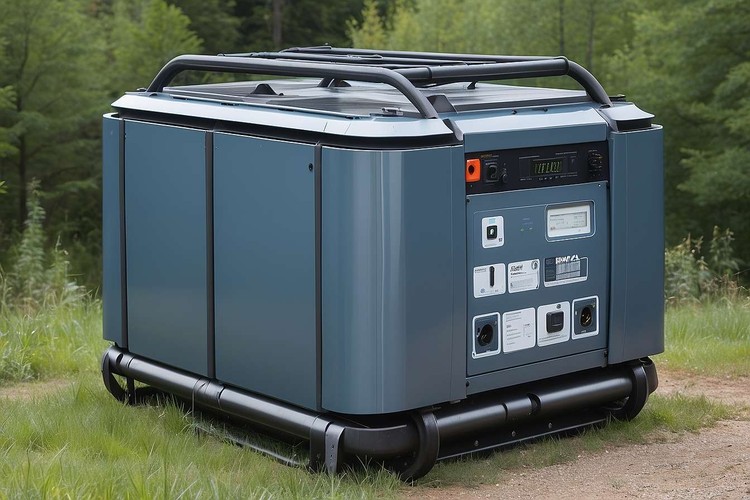Exploring How Solar Energy Supports Outdoor and Off-Grid Living
Solar energy has become essential for those seeking independence from the grid. Discover how portable solar setups, efficient charging systems, and renewable innovations power outdoor lifestyles while reducing carbon footprints and supporting self-sufficient living.

Solar power has transformed the possibilities for those seeking independence from conventional power systems, whether for recreational outdoor adventures or permanent off-grid living solutions. By harnessing energy from the sun, individuals can power essential devices and entire homes without reliance on utility companies or fossil fuels. This growing trend represents both a practical solution for remote living and a conscious choice toward environmental sustainability.
Understanding Off-Grid Solar Energy Systems
Off-grid solar energy systems function independently from traditional power grids, making them ideal for remote locations or as backup power sources. These standalone systems typically include solar panels, charge controllers, batteries for energy storage, and inverters to convert DC power to usable AC electricity. Unlike grid-tied systems, off-grid setups must be carefully sized to meet all energy needs, especially during periods of limited sunlight.
The core components work together to capture solar energy, store it efficiently, and deliver consistent power regardless of weather conditions or time of day. Modern off-grid systems incorporate sophisticated battery technology, including lithium-ion options that offer greater energy density and longer lifespans than traditional lead-acid batteries. This technological evolution has made living completely off-grid increasingly viable for more people.
Portable Solar Setup Ideas for Outdoor Adventures
For outdoor enthusiasts who need power while camping, hiking, or traveling in recreational vehicles, portable solar solutions provide remarkable flexibility. Foldable solar panels that weigh just a few pounds can charge phones, tablets, cameras, and small appliances. More robust portable systems featuring integrated batteries can power laptops, small refrigerators, and lighting systems for days.
Innovative designs include solar backpacks with integrated panels, roll-up solar blankets that can be spread across camp sites, and compact power stations that combine solar charging capabilities with substantial battery storage. These systems allow adventurers to extend their time away from civilization while maintaining essential communications and comforts. Many portable systems now include multiple output options, including standard AC outlets, USB ports, and 12V connections to accommodate various devices.
Renewable Outdoor Power for Sustainable Living
Renewable outdoor power extends beyond convenience to represent a fundamental shift toward sustainable living practices. By replacing generators and other fossil fuel power sources with solar systems, outdoor enthusiasts and remote dwellers significantly reduce their carbon footprint. A medium-sized solar array can prevent thousands of pounds of carbon dioxide emissions annually compared to generator use.
Solar power also eliminates the noise pollution associated with generators, creating a more peaceful outdoor experience that better connects users with nature. The silent operation of solar systems preserves the tranquility of natural settings while still providing necessary power. Additionally, solar equipment requires minimal maintenance compared to generators, which need regular servicing, fuel transportation, and eventual replacement of mechanical parts.
Eco-Living Energy Efficiency Strategies
Maximizing energy efficiency becomes crucial when relying on solar power, particularly in off-grid scenarios. Smart design choices like LED lighting, energy-efficient appliances, and passive solar building techniques can dramatically reduce power requirements. Many off-grid dwellers adopt energy-conscious habits, such as scheduling power-intensive activities during peak sunlight hours and minimizing phantom loads from electronics.
Water management systems powered by solar energy, including pumps and filtration units, further enhance eco-living capabilities. Some off-grid homesteads implement integrated systems where solar power supports multiple sustainability initiatives, from greenhouse operations to rainwater collection and treatment. These holistic approaches demonstrate how renewable energy can be the foundation for comprehensive sustainable living practices.
Solar System Sizing and Cost Considerations
Determining the appropriate size and configuration for an off-grid solar system involves calculating daily energy consumption, accounting for seasonal variations in sunlight, and planning for backup power needs. While initial costs for comprehensive off-grid systems remain significant, prices have decreased substantially over the past decade, making solar power increasingly accessible.
| System Type | Typical Components | Approximate Cost Range | Best For |
|---|---|---|---|
| Basic Portable Kit | 100W panel, small battery, controller | $200-$500 | Weekend camping, charging small devices |
| Mid-Range System | 400W panels, 2kWh battery storage, inverter | $1,500-$3,000 | RV travel, small cabins, part-time use |
| Complete Off-Grid | 5-10kW panel array, 10-20kWh battery bank, inverters, controllers | $15,000-$35,000 | Full-time off-grid homes |
| Premium System | 10-15kW array, 20-40kWh lithium battery storage, backup generator | $30,000-$60,000 | Large off-grid homes with modern amenities |
Prices, rates, or cost estimates mentioned in this article are based on the latest available information but may change over time. Independent research is advised before making financial decisions.
Integration with Other Renewable Technologies
Many off-grid enthusiasts combine solar power with additional renewable energy sources to create robust, resilient systems. Wind turbines can complement solar panels by generating power during nighttime hours or cloudy days. Micro-hydro systems provide consistent power generation in locations with flowing water sources. These hybrid approaches address the intermittent nature of solar energy and ensure more reliable power availability throughout changing seasons and weather conditions.
Energy storage technologies continue to advance, with innovations in battery chemistry improving capacity, cycle life, and safety. Some off-grid systems now incorporate hydrogen fuel cells or mechanical storage solutions like flywheels as alternatives to traditional batteries. This technological diversity allows system designers to create customized solutions that match specific geographical and lifestyle requirements.
The freedom and sustainability offered by solar-powered off-grid living continue to attract those seeking independence from conventional infrastructure and closer connections to natural environments. As technology advances and becomes more affordable, the possibilities for comfortable, environmentally responsible living away from traditional power grids will only expand, making solar energy an increasingly central component of outdoor and alternative lifestyle choices.




